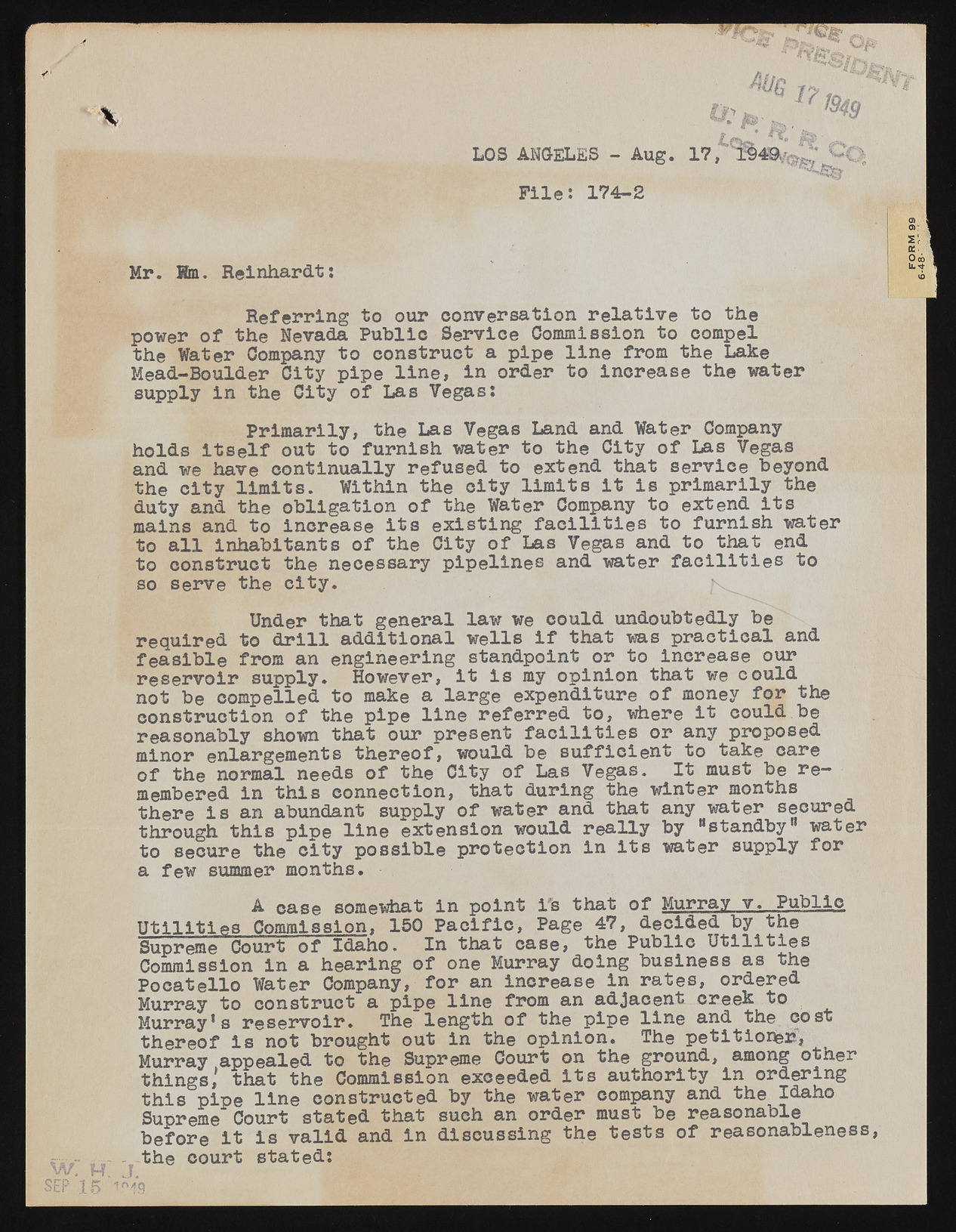Copyright & Fair-use Agreement
UNLV Special Collections provides copies of materials to facilitate private study, scholarship, or research. Material not in the public domain may be used according to fair use of copyrighted materials as defined by copyright law. Please cite us.
Please note that UNLV may not own the copyright to these materials and cannot provide permission to publish or distribute materials when UNLV is not the copyright holder. The user is solely responsible for determining the copyright status of materials and obtaining permission to use material from the copyright holder and for determining whether any permissions relating to any other rights are necessary for the intended use, and for obtaining all required permissions beyond that allowed by fair use.
Read more about our reproduction and use policy.
I agree.Information
Digital ID
Permalink
Details
More Info
Rights
Digital Provenance
Publisher
Transcription
ft; , " 1 ? 1949 LOS ANGELES - Aug. 17,'1^4Bvvw* File: 174-2 Mr. Hm. Reinhardt: W. M B SEP 1 5 ifMS Referring to our conversation relative to the power of the Nevada Public Service Commission to compel the Water Company to construct a pipe line from the Lake Mead-Boulder City pipe line, in order to increase the water supply in the City of Las Vegas: Primarily, the Las Vegas Land and Water Company holds itself out to furnish water to the City of Las Vegas and we have continually refused to extend that service beyond the city limits. Within the city limits it is primarily the duty and the obligation of the Water Company to extend its mains and to increase its existing facilities to furnish water to all inhabitants of the City of Las Vegas and to that end to construct the necessary pipelines and water facilities to so serve the city. Under that general law we could undoubtedly be required to drill additional wells if that was practical and feasible from an engineering standpoint or to increase our reservoir supply. However, it is my opinion that we could not be compelled to make a large expenditure of money for the construction of the pipe line referred to, where it could be reasonably shown that our present facilities or any proposed minor enlargements thereof, would be sufficient to take care of the normal needs of the City of Las Vegas. It must be remembered in this connection, that during the winter months there is an abundant supply of water and that any water secured through this pipe line extension would really by HstandbyB water to secure the city possible protection in its water supply for a few summer months. A case somewhat in point i% that of Murray v. Public Utilities Commission. 150 Pacific, Page 47, decided by the Supreme Court of Idaho. In that case, the Public Utilities Commission in a hearing of one Murray doing business as the Pocatello Water Company, for an increase in rates, ordered Murray to construct a pipe line from an adjacent creek to Murray1s reservoir. The length of the pips line and the cost thereof is not brought out in the opinion. The petitioner, Murray appealed to the Supreme Court on the ground, among other things,* that the Commission exceeded its authority in ordering this pipe line constructed by the water company and the Idaho Supreme Court stated that such an order must be reasonable before it is valid and in discussing the tests of reasonableness, the court stated: FO R M 99

